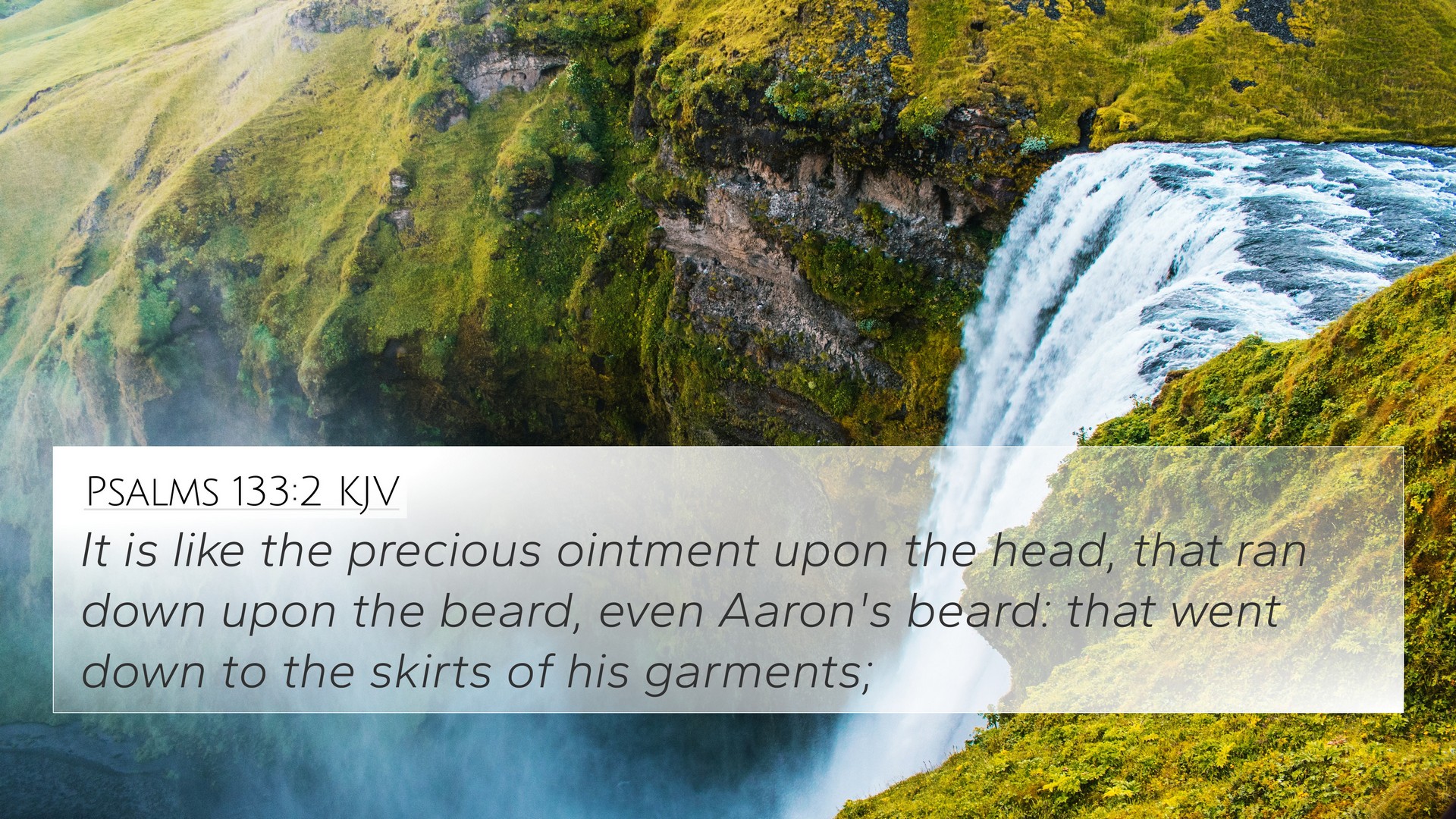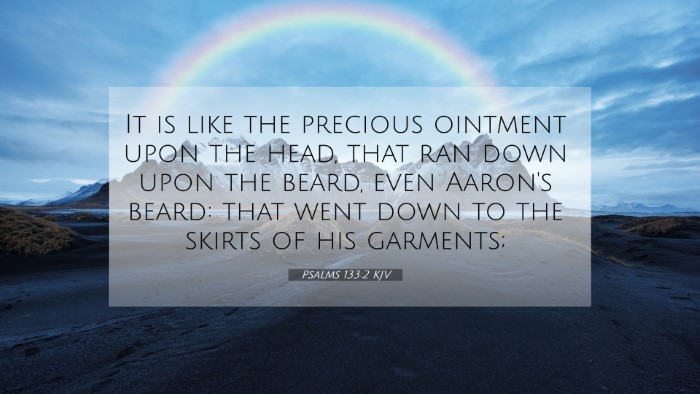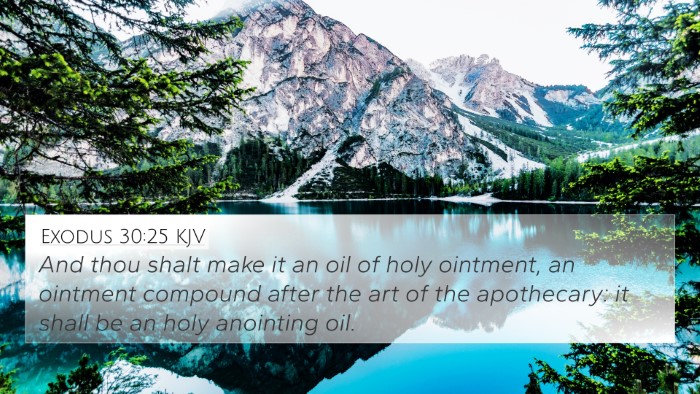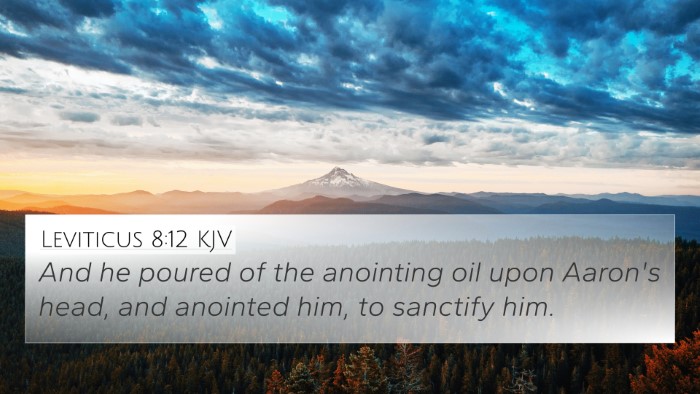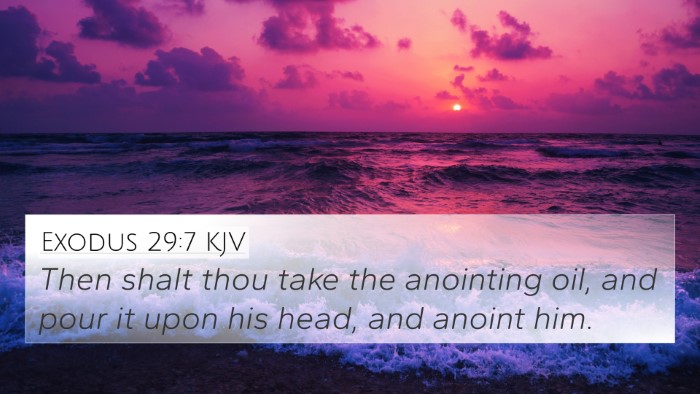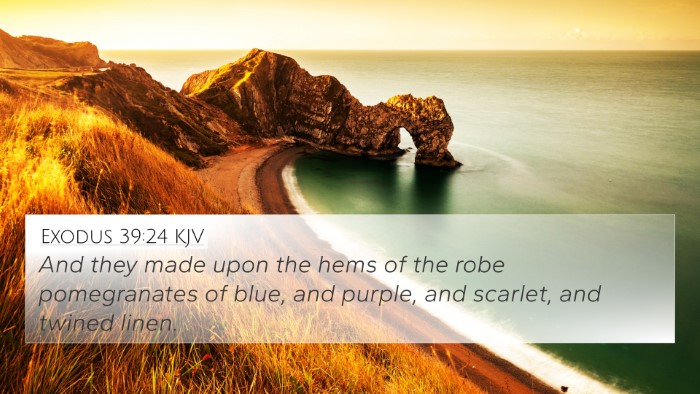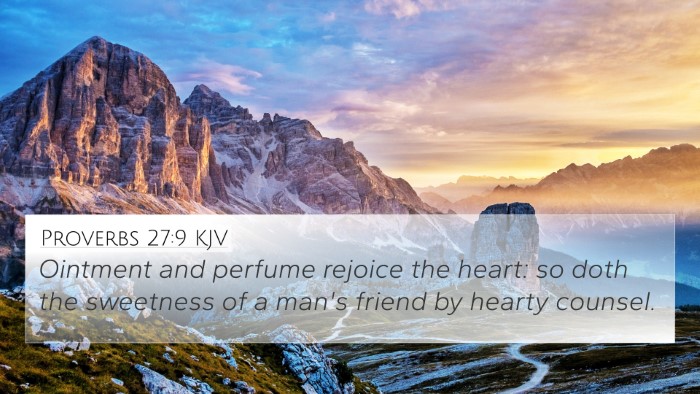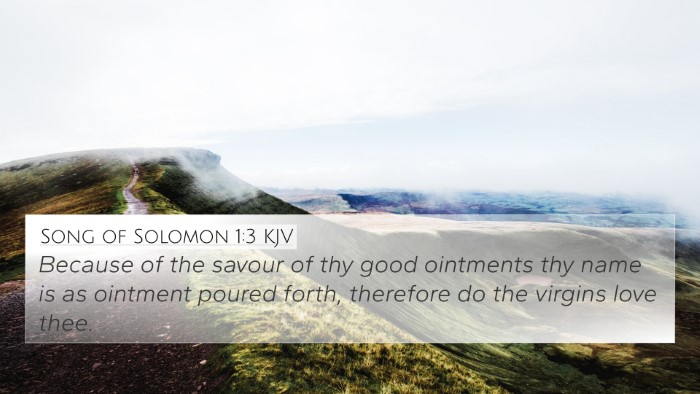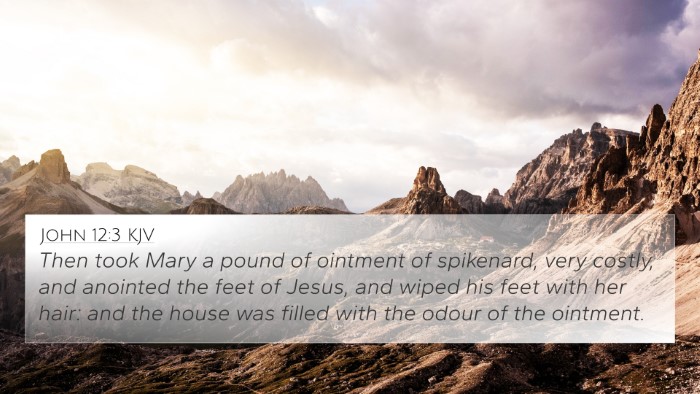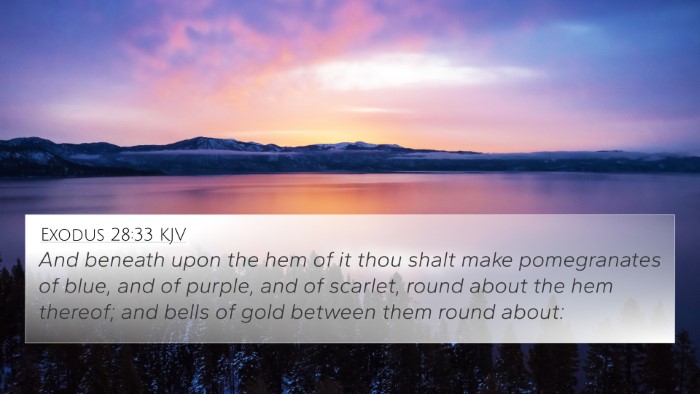Psalms 133:2 Interpretation and Meaning
Bible Verse: Psalms 133:2 - "It is like the precious ointment upon the head, that ran down upon the beard, even Aaron's beard: that went down to the skirts of his garments."
Summary of Meaning
This verse draws a beautiful comparison to the anointing oil used in the consecration of Aaron, the high priest in Israel. It illustrates the significance of unity among the brethren and the resulting blessings that flow from such harmony.
Commentary Insights
Insights from various public domain commentaries reveal deeper meanings embedded in this scripture:
-
Matthew Henry:
Matthew Henry emphasizes that this anointing oil symbolizes the Holy Spirit, which not only signifies the sanctification of Aaron but also represents the unity and harmony among the people of God. Just as the oil flows abundantly, so too does the joy and blessing of unity among believers.
-
Albert Barnes:
Albert Barnes reflects on the precious nature of the ointment, highlighting that it was a significant and costly substance representing richness and abundance. He notes that the running down of the oil signifies how love and unity should permeate all aspects of community life among believers.
-
Adam Clarke:
Adam Clarke details the ancient practice of anointing as a sign of setting apart for a holy purpose. He also notes the richness of God’s blessings that come to those who dwell in unity. Clarke focuses on the importance of maintaining harmony within the body of Christ as essential for experiencing the fullness of God’s grace.
Bible Cross-References
Psalms 133:2 is interconnected with various other scriptures that speak on the topics of unity, anointing, and divine blessing. Here are 10 significant cross-references:
- Exodus 30:30: Discusses the anointing of Aaron and his sons with the holy anointing oil.
- 1 Peter 2:9: Describes believers as a royal priesthood, highlighting their honor and calling.
- Philippians 2:2: Encourages unity, urging believers to be of the same mind, having the same love.
- John 17:20-21: Jesus' prayer for unity among believers, reflecting the eternal connection between them.
- Acts 4:32: Describes the early church being of one heart and one soul, an embodiment of unity.
- Ephesians 4:3: Calls for the unity of the Spirit in the bond of peace among the followers of Christ.
- Psalm 133:1: The preceding verse that emphasizes the beauty of unity among brethren.
- Matthew 5:9: Pronounces blessings on peacemakers, reinforcing the theme of unity.
- Colossians 3:14: Asserts that love binds everything together in perfect harmony.
- Romans 12:5: Speaks of believers as being one body in Christ, emphasizing unity within diversity.
Thematic Connections
The themes of this verse resonate deeply within the broader narrative of Scripture. The anointing oil serves as a symbol, echoing throughout the Bible in various contexts, linking different scriptures together. Here are some thematic explorations related to this verse:
- Sanctification: Anointing oil signifies God’s choice and purpose, paralleling the transformative call on believers to live holy lives set apart for Him.
- Unity in Diversity: As the oil flows down, it symbolizes how unity can exist amid diversity within the body of Christ, akin to Paul's teachings in 1 Corinthians 12.
- Divine Blessing: The verse illustrates that where there is unity, there is a commanded blessing; this is reiterated in other texts, such as Deuteronomy 28 regarding blessings for obedience.
- Presence of God: Just as the oil signifies the presence of the Holy Spirit, it draws a parallel to the narrative of God dwelling among His people in unity.
Using Tools for Bible Cross-Referencing
Understanding Psalms 133:2 within the larger context of Scripture can be enhanced using various tools for Bible cross-referencing. These resources are valuable for study and meditation:
- Bible Concordance: An essential tool for locating various uses of similar words and themes throughout the Bible.
- Bible Cross-Reference Guide: Provides systematic connections between verses that complement or contrast each other.
- Bible Chain References: Often found in study Bibles, these guide readers through themes, concepts, or narratives across different scriptures.
- Cross-Reference Bible Study: Enables focused study on a particular topic or theme by following interconnections among verses.
- Cross-Referencing Bible Study Methods: Approaches that incorporate narrative, thematic, and character studies to yield a holistic understanding of Scriptural truths.
Conclusion
The rich imagery and profound implications of Psalms 133:2 invite us to seek unity among believers, reminding us that such harmony is both precious and divinely blessed. As we contemplate the connections between this and other scriptures, we are reminded of the overarching themes of love, peace, and God's continual presence among His people.
